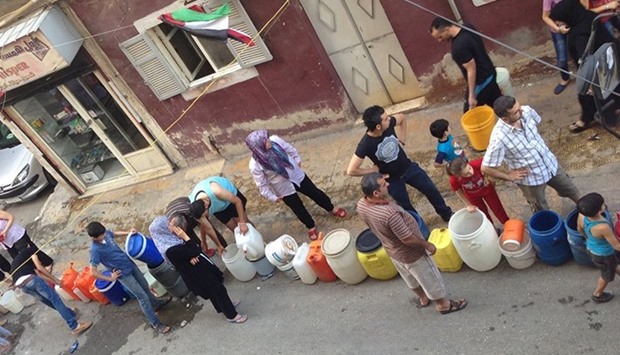Rebel-held districts in the east of the city came under intense air and artillery fire for a fifth night as the army prepared a ground offensive to recapture the whole of the divided city.
"Intense attacks last night have damaged the Bab al-Nayrab water pumping station, which supplies water to some 250,000 people in the eastern parts of Aleppo," the UN children's agency UNICEF said.
"Violence is preventing repair teams from reaching the station.
"In retaliation, the Suleiman al-Halabi pumping station, also located in the east, was switched off, cutting water to 1.5 million people in the western parts of the city," which are held by the government.
UNICEF said the loss of mains supply posed serious health risks in rebel-held areas as the only alternative source of drinking water was from highly contaminated wells.
It said safer alternatives were available in government-held areas where there were deep groundwater wells.
The agency said it would expand emergency water trucking throughout the city, but warned that was only a temporary solution that was unsustainable in the long term.
"It is critical for children's survival that all parties to the conflict stop attacks on water infrastructure, provide access to assess and repair damage to Bab al-Nayrab station, and switch the water back on at the Suleiman al-Halabi station."
Aleppo was Syria's pre-war commercial and industrial hub but has been devastated by fighting since the rebels seized eastern districts of the city in 2012, making it a frontline battleground.
The denial of access to food, water and medicines has been used repeatedly as a weapon by all sides in Syria's brutal five-year-old civil war.
Nationwide hundreds of thousands of civilians are living under siege.

